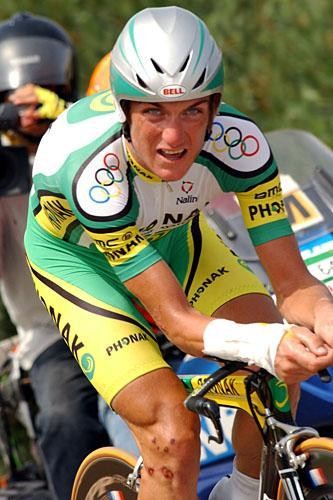International Olympic Committee may retest 2004 samples
Athens Olympic doping samples set to be destroyed in August 2012

The International Olympic Committee (IOC) may perform a re-test of doping samples from the 2004 Olympic Games in Athens according to the Associated Press on Tuesday.
The frozen samples are set for destruction this summer, but IOC medical commission chairman Arne Ljungqvist indicated that some samples may be re-tested. More sophisticated tests exist now compared to eight years ago, and the agency may be able to catch dopers who used substances that were undetectable at the time. Such substances include insulin and growth hormone.
WADA had requested the re-test of the 2004 Olympic samples using newer testing methods, and if it happens, it won't be the first time the IOC has re-tested samples belatedly. It did so for the 2006 Turin Winter Olympics and the 2008 Beijing Summer Olympics. While no new positives were detected from the 2006 Olympics, five athletes tested positive for EPO CERA in the 2008 re-testing.
"This is the very message that we wanted when we asked people to store (samples) for eight years," WADA director general David Howman told the AP on Tuesday. "If you cheated and you thought you got away with it, you might have to think again. Don’t look yourself in the mirror until the eight years are up."
It is standard procedure for Olympic doping samples to be stored for eight years. The Athens storage period will expire on August 29, 2012.
Six medallists, out of 26 positive doping cases, have already been caught from the 2004 Olympic Games out of a total of 3,600 tests that were performed during those Olympics.
There has been no decision on how many or which samples will be re-tested or for exactly which substances they will be tested. Ljungqvist estimated that re-testing could range from 100 to several hundred samples and may target "high-risk" sports and athletes. A final decision is expected in the next few weeks.
Get The Leadout Newsletter
The latest race content, interviews, features, reviews and expert buying guides, direct to your inbox!
One cyclist's sample which the IOC won't have to re-test is American Tyler Hamilton, who in 2011 admitted to doping and turned over his 2004 time trial gold medal to the United States Anti-Doping Agency. The silver medallist in that Games had been Russian Viatcheslav Ekimov prior to Hamilton's confession.
Complete 2004 Olympic Games coverage, including information on who won what cycling medals is in the Cyclingnews archives.